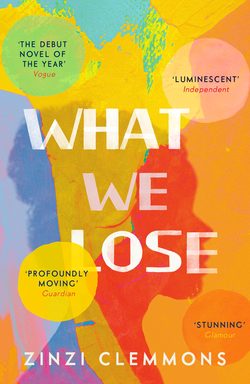Читать книгу What We Lose - Zinzi Clemmons - Страница 11
ОглавлениеThe security of my hometown in Pennsylvania was way past anything my South African family could imagine. The town was populated by stately old colonial mansions, most of them worth millions of dollars. When family members visited from South Africa, they would ask, where are the security fences? Our neighbor, an old widow with a stubborn streak, slept with the front door wide open through the night. Is she mad? my aunts and uncles would ask. She may have been, but in that town it barely raised an eyebrow.
In winter, the houses were adorned by twinkling Christmas lights. My relatives asked if they could take pictures on our neighbors’ lawns. We spent hours driving around to find the brightest displays, in neighborhoods miles away from ours. They would never have done this at home, my relatives said, because people would steal the lights. Robbers would climb up on the fences and the roofs and cut them down, then sell them on the black market for the copper wiring.
In South Africa, there was little rhyme or reason to the tragedies of daily life, but there was social order of an old-world type and magnitude. I didn’t respect her, my mother would often say, because I didn’t speak to her like a child should. But I wasn’t any ruder than my school friends, who treated their parents as older companions or siblings. This type of equality was at the root of my mother’s feelings of insecurity. In South Africa, elders were treated with extreme dignity that, in my eyes, bordered on the comical. My cousins never addressed their parents with pronouns face-to-face. Instead, even my middle-aged aunts and uncles with grown children of their own referred to my grandfather as “Da” or “Daddy” instead of “you.” Thus, a casual request turned into an awkward and foreign-sounding statement, as they were forced to say, “Can Daddy please pass the salt?” I could never imagine such a sentence falling from my American lips.
One of my school friends called both her parents by their first names. My mother found her so novel and strange that she actually liked her. She called this friend her favorite, with heavy sarcasm. Whenever I spoke my friend’s name, my mother would chuckle and shake her head, as if delighted at the thought that this girl actually existed.
